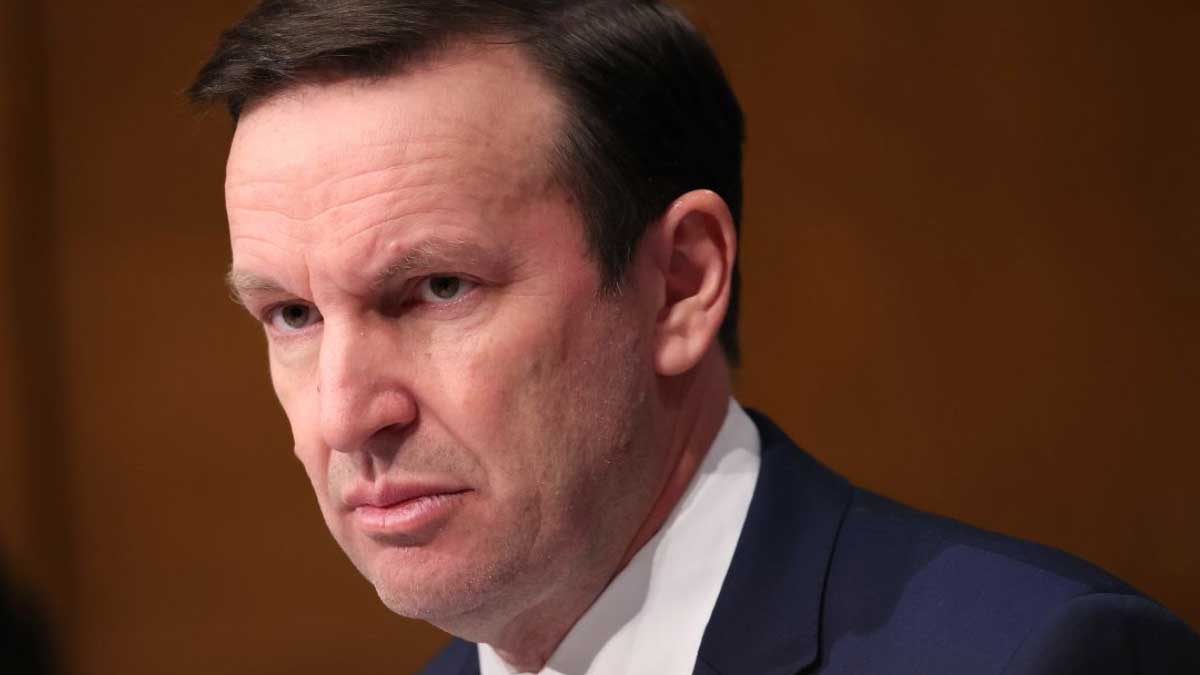- Home
- Billionaires
- Investing Newsletters
- 193CC 1000
- Article Layout 2
- Article Layout 3
- Article Layout 4
- Article Layout 5
- Article Layout 6
- Article Layout 7
- Article Layout 8
- Article Layout 9
- Article Layout 10
- Article Layout 11
- Article Layout 12
- Article Layout 13
- Article Layout 14
- Article Sidebar
- Post Format
- pages
- Archive Layouts
- Post Gallery
- Post Video Background
- Post Review
- Sponsored Post
- Leadership
- Business
- Money
- Small Business
- Innovation
- Shop
Recent Posts
Five Democrats Targeted by Bomb Threats on Thanksgiving

In a chilling reminder of the escalating political climate in the United States, five Democratic lawmakers, including four representatives and one senator from Connecticut, received bomb threats on Thanksgiving Day. The threats came just one day after multiple members of President-elect Donald Trump’s transition team, including some of his Republican cabinet picks, were targeted by similar violent threats. These disturbing incidents highlight the growing trend of political violence that has been plaguing the nation, particularly in a year marked by heightened partisan divisions.
A spokesperson for Connecticut Senator Chris Murphy confirmed that his home in Hartford was among the locations targeted. The threat, which appeared to be part of a broader coordinated effort, involved not only Murphy but also multiple other public figures, including other members of Congress. Murphy’s office indicated that the threat seemed to involve a number of prominent political figures and was part of a disturbing pattern of intimidation aimed at elected officials.
In addition to Murphy, Democratic Reps. Joe Courtney, Jahana Hayes, Jim Himes, and John Larson from Connecticut were also targeted by bomb threats on the same day. Each of their offices issued statements confirming that their homes were included in the wave of threats. Despite the alarming nature of the threats, none of the lawmakers reported finding any actual explosives at their residences.
Courtney’s office released a statement confirming that his house was targeted while he and his family were home, but no bomb was found on the property. Hayes, another target, shared her own harrowing experience, explaining that she was notified early Thursday morning about a threatening email in which a bomb was said to have been placed in her home’s mailbox. Authorities responded swiftly, and the scene was cleared without incident after no bomb was discovered. Similarly, Himes and Larson issued statements reporting that their homes were also targeted by bomb threats, but no evidence of explosives was found in either case.
In a public statement on social media, Rep. Jim Himes shared his thoughts on the troubling situation: “There is no place for political violence in this country, and I hope that we may all continue through the holiday season with peace and civility.” His words resonated deeply, particularly in light of the rising tensions across the political spectrum and the alarming prevalence of violent threats against public officials.
The bomb threats to Democratic lawmakers occurred amid a wider wave of threats and harassment targeting political figures from both sides of the aisle. Trump’s transition team also revealed that several of his cabinet nominees had received similar violent threats, including bomb threats and so-called “swatting” incidents. Swatting involves falsely reporting an emergency to law enforcement to provoke a large, potentially violent, response at a targeted location. The FBI confirmed it was aware of these numerous threats, particularly those targeting incoming administration nominees and appointees.
Despite the surge in threats against political figures, former President Trump did not directly comment on the bomb threats targeting Democratic lawmakers. However, his spokesperson Karoline Leavitt released a statement underscoring the administration’s commitment to not being intimidated by such acts of violence: “With President Trump as our example, dangerous acts of intimidation and violence will not deter us.” This remark, however, contrasted with the more sympathetic tone taken by Democratic lawmakers in their statements following the threats. While Trump’s rhetoric has often stoked division, many of the targeted lawmakers have called for unity and peace, urging Americans to reject political violence and maintain civility.
The increase in political violence and threats targeting public officials has become a significant concern for both law enforcement agencies and political leaders. In recent years, incidents of political violence have surged, with a Reuters investigation showing that 2023 was the worst year for such violence in the United States since the 1970s. This surge in aggression is part of a wider trend linked to the nation’s increasingly polarized political environment, which has left many public figures vulnerable to attacks and harassment from extremist factions.
In early October, the Department of Homeland Security (DHS) and the FBI issued a joint warning about the heightened threat of domestic violent extremists targeting political figures ahead of and following the upcoming elections. According to the DHS and FBI, extremists with election-related grievances may resort to a variety of violent tactics, including bombings, physical attacks, threats of violence, and even arson. These groups have been mobilized by social issues such as immigration, LGBTQ+ rights, and abortion, and their influence has only grown since the violent January 6 Capitol riot, which resulted in the deaths of seven people and over 1,400 arrests.
The rising threat of political violence has left many Americans worried about the future of political discourse in the U.S. A poll conducted late in 2022 revealed that the majority of Americans believe political violence will continue to worsen in the wake of the January 6th attack. Since that day, which saw rioters storm the Capitol building in an attempt to overturn the results of the 2020 presidential election, Reuters has tracked over 300 instances of political violence, with at least 51 of these occurring in 2023 alone.
The persistent threats against lawmakers and public figures paint a bleak picture of a nation grappling with political division and unrest. While many politicians, including Himes, have called for unity and a rejection of political violence, the underlying issues of polarization and extremism remain deeply entrenched. For now, the threat of further violence continues to loom over the country’s political landscape, with both Democratic and Republican lawmakers facing heightened risks as they navigate an increasingly hostile political environment.
As the holiday season continues, the hope is that the acts of kindness and goodwill that typically define this time of year can serve as a reminder of the importance of peace and civility in the face of rising threats. However, as these bomb threats show, the battle for political peace in the U.S. is far from over.
Recent Posts
Categories
- 193cc Digital Assets2
- 5G1
- Aerospace & Defense45
- AI33
- Arts3
- Banking & Insurance11
- Big Data3
- Billionaires308
- Boats & Planes1
- Business315
- Careers13
- Cars & Bikes74
- CEO Network1
- CFO Network17
- CHRO Network1
- CIO Network1
- Cloud10
- CMO Network18
- Commercial Real Estate7
- Consultant1
- Consumer Tech171
- CxO1
- Cybersecurity59
- Dining1
- Diversity, Equity & Inclusion4
- Education7
- Energy8
- Enterprise Tech29
- Events11
- Fintech1
- Food & Drink2
- Franchises1
- Freelance1
- Future Of Work2
- Games141
- GIG1
- Healthcare77
- Hollywood & Entertainment175
- Houses1
- Innovation41
- Investing2
- Investing Newsletters4
- Leadership65
- Lifestyle11
- Manufacturing1
- Markets20
- Media189
- Mobile phone1
- Money13
- Personal Finance2
- Policy554
- Real Estate1
- Research6
- Retail1
- Retirement1
- Small Business1
- SportsMoney30
- Style & Beauty1
- Success Income1
- Taxes2
- Travel10
- Uncategorized8
- Vices1
- Watches & Jewelry2
- world's billionaires278
Related Articles
Trump Threatens 100% Tariffs on BRICS Over Dollar Replacement
Donald Trump issued a stark warning on Saturday, stating that he would...
By 193cc Agency CouncilNovember 30, 2024‘MAGA’ Bomb Threats Target Connecticut Democrats
Six congressional Democrats from Connecticut were targeted with bomb threats on Thanksgiving,...
By 193cc Agency CouncilNovember 30, 2024Mothers of Chibok: Ten Years of Strength and Struggle
The documentary Mothers of Chibok, which premiered at the DOC NYC film...
By 193cc Agency CouncilNovember 29, 2024Sheinbaum Clarifies Stance After Trump Claims Border Deal
President-elect Donald Trump ignited international discussion on Wednesday when he claimed that...
By 193cc Agency CouncilNovember 29, 2024















Leave a comment